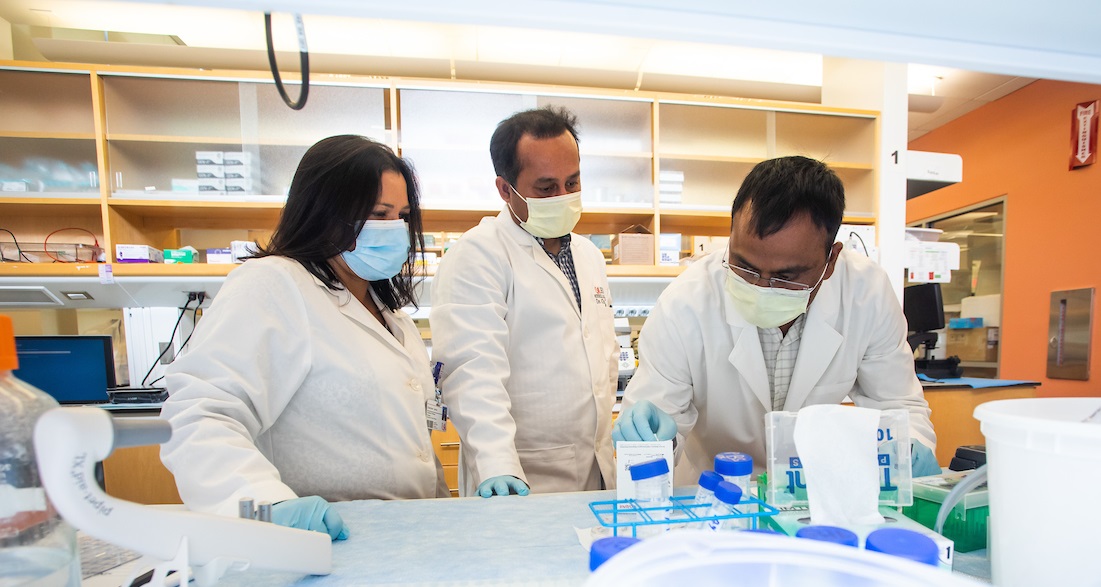 |
| From left, Chandrani Sarkar, Ph.D., Debanjan Chakroborty, Ph.D., and Sandeep Goswami, Ph.D., are studying a potential therapeutic target for advanced colon cancer at the Mitchell Cancer Institute. |
“Angiogenesis is a well-established target for treating several cancers because it is an essential process required for the growth and metastasis of many solid tumors, including colon cancers,” Sarkar said.
Vascular endothelial growth factor-A (VEGF-A) is the most potent angiogenic factor promoting tumor growth and metastasis in colon cancer. Anti-VEGF-A agents, combined with chemotherapy, are used to treat patients with metastatic colon adenocarcinoma.
 |
Chandrani Sarkar, Ph.D., and Sooraj Kakkat, Ph.D., work in the lab at the Mitchell Cancer Institute. |
Researchers at USA Health have found a potential alternative. Results from their study demonstrate that neuropeptide Y, through its Y2 receptor (Y2R), actively promotes angiogenesis in colon cancer. “Thus, NPY-mediated angiogenic pathway can be an important alternative angiogenic pathway in advanced colon cancer patients,” Sarkar said.
Using Y2R antagonists alone or adding Y2R antagonists to conventional chemotherapeutic and anti-angiogenic treatment regimens in colon adenocarcinomas that express high levels of NPY is a promising therapeutic strategy, she said.
Contributing authors from USA Health include Debanjan Chakroborty, Ph.D., a member of the Cancer Biology Program at the MCI and assistant professor of pathology at the Whiddon College of Medicine; and Sandeep Goswami, Ph.D., a postdoctoral researcher at the MCI and the USA Department of Pathology.
This study was funded by a grant from the National Cancer Institute, National Institutes of Health. The authors are thankful to the Mitchell Cancer Institute and the USA Department of Pathology for the research support they received.
